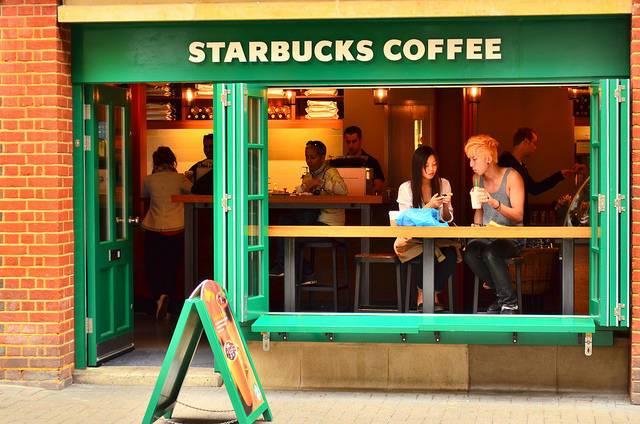
In the wake of the Trump era, Brexit and as of press time, a potentially hung Parliament in the United Kingdom, trust in many of our institutions is trending low. The business community actually has a strong opportunity to step in and build trust and positive impact. President Trump’s announcement last week that the U.S. will leave the Paris Agreement serves as just one example where a vacuum of leadership exists.
The problem, as the branding consultancy Enso has outlined in a recent report, is that while 80 percent of the consumers it surveyed said they believe that business can make a positive impact on society, only 41 percent trust business leaders to do what’s best for people.
The survey also found plenty of opportunities for businesses and non-profits to hone their messages in order to find ways to broaden their appeal to what has become an increasingly fickle consumer base. Interestingly enough, Starbucks and National Public Radio (NPR) were found to be the most polarizing brands amongst 150 various brands it surveyed. In the case of the coffee giant and news service, being polarizing may not necessarily be a bad thing: Starbucks’ revenues keep increasing at a steady pace, while NPR has claimed it enjoyed a surge in listeners during last year’s presidential election season.
But where brands can glean some guidance on what they need to do to boost their appeal amongst consumers is what Enso’s researchers found when they determined the overall top 10 brands. And those organizations are quite the motley crew, as the top three, in order, are Goodwill, Girl Scouts of America and Amazon. Other organizations making that list include Google, Save the Children, Microsoft, YMCA, WWF, Dove and (in a victory considering its former spokesman’s heinous fall from grace), Subway.
And what, you may wonder, what those groups share in common? Words associated with those brands included 'world,' 'healthy,' 'care,' 'good,' 'community,' 'help,' 'people' and 'skills.' To some of these companies’ critics, tagging Amazon with “good” or Subway with “healthy” may be a stretch – but to those firms’ credit, they have earned that reputation for better or worse.
Then there are some brands, which rather unfairly, have a perception challenge. “Procter and Gamble seems to have a Millennial problem,” summarized Enzo’s researchers. That may be true, as the under-35 crowd may not so quick to “squeeze the Charmin,” unlike their parents and grandparents, who in general are old enough to remember Mr. Whipple. But if there is one company that should earn the affection of Millennials, it is P&G, which has worked behind the scenes on improving sustainable forestry in the U.S. while one of its brands, Vicks, was gutsy enough to showcase the love of a transgender parent in India. The trick for P&G is to make its timeless, and arguably, stodgy brands, appeal to a crowd that is always looking for the hottest and best thing to tout on Instagram.
Some of Enso’s findings are not so surprising, and even border on cliché. Democrats love Starbucks and Ben & Jerry’s, while apparently, Republicans crush on ExxonMobil and Pfizer. And nobody apparently cares much for Monsanto, Wells Fargo, Goldman Sachs and Marlboro (Snapchat, curiously, was near the bottom of the list, one step below Coors).
A key lesson for brands is to strengthen their appeal across various types of demographics so that they can retain and strengthen their reputation. And this is where Starbucks scores win after win. It should be no surprise that the company is seen as “polarizing,” as it has stepped into social and political issues that include race, refugees, guns and LGBT equality. So while Millennials may be ditching large personal care brands and sit-down restaurant chains, they are still visiting Starbucks; and the coffee company that seems to be on every street corner is also frequented by what Enso describes as “Multiculturalists” (curious about the world) and “Elites” (higher income earners). Boomers, dads and Republicans may be wary of Starbucks; but based on the long lines typical at 8:00 a.m., Starbucks revenues have kept growing at a reliable pace anyway.
The challenge that brands have as they seek to become “purpose-driven” is that they also need to be inclusive. The Enso data reveals that consumers who insist that companies have a social cause have the luxury to think along those lines because they can afford to do so. Consumers with lower incomes are just trying to get by, so they are eschewing the likes of Trader Joe’s, Starbucks, and Patagonia. They also maintain a distrust of business leaders and often do not feel as if they can affect the world around them. Meanwhile, lower income earners remain loyal to brands such as Walmart, McDonald’s, Lay’s and eBay. Therefore, if a brand crack that nut and prove that activism does not have to be a luxury, then they can score a big victory in winning over new consumers – and scoring that valuable commodity known as trust.
Image credit: Garry Knight/Flickr

Leon Kaye has written for 3p since 2010 and become executive editor in 2018. His previous work includes writing for the Guardian as well as other online and print publications. In addition, he's worked in sales executive roles within technology and financial research companies, as well as for a public relations firm, for which he consulted with one of the globe’s leading sustainability initiatives. Currently living in Central California, he’s traveled to 70-plus countries and has lived and worked in South Korea, the United Arab Emirates and Uruguay.
Leon’s an alum of Fresno State, the University of Maryland, Baltimore County and the University of Southern California's Marshall Business School. He enjoys traveling abroad as well as exploring California’s Central Coast and the Sierra Nevadas.














